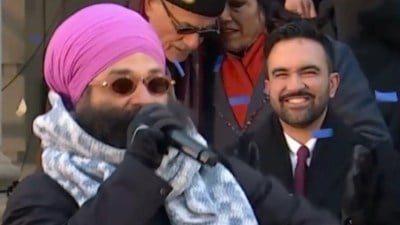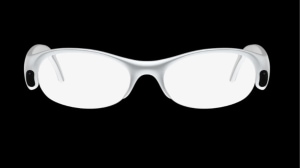Integrating the mind
From carrying a photograph of Swami Vivekananda in his pocket as an ambitious young student from a farmer's family, to an education baron of...

From carrying a photograph of Swami Vivekananda in his pocket as an ambitious young student from a farmer8217;s family, to an education baron of today, Vishwanath Karad8217;s search for his ultimate goal is still on.
Scores of educational institutes under the umbrella of the Maharashtra Academy of Engineering and Educational Research MAEER have provided a broad platform for Karad to realise his dream of attaining the fusion of science, religion and philosophy and applying it to the field of education.
A new system of education, which emerged as a vague thought in childhood, has today concretised into reality for Karad, who is trying to use education as a tool for attaining world peace. On his return from the World Philosophers Meet 8217;98 8211; II, held at Geneva recently, Karad, chairman of the convention, spoke on his ideas of initiating a world peace culture through education.
8220;The purpose of organising the convention was not to teach, preach or propagate, but simply to learn and understand from scholars and thinkers from various parts of the world about what needs to be done to establish a holistic global society and how to work towards its accomplishment,8221; he says.
The inspiration for this mission in education comes from Swami Vivekananda. Karad says, 8220;Swami Vivekananda, one of the most enlightened sons of India, firmly believed that the union of science and religion alone will bring peace to humanity. It is the essence of this belief that I am trying to bring true through my efforts,8221; he adds.
Explaining further, he says, 8220;Even though no religion teaches jealousy and hatred, a large number of clashes, conflicts and bloodshed owe their origin to religious differences.8221; It is necessary to bring home these points so that the followers of different religions take their respective religious teachings in the right spirit.
He laments, 8220;Most of the national education commission reports from various countries have expressed serious concern about their present education system. This is because even children below 14 years of age, in the name of freedom, indulge in all sorts of crime, violence, immoral and unethical practices. This scene is leaving the younger generation directionless8221;.
The ethical and moral value system, the soul of education, is missing from the present education set-up, observes Karad. If we really want to see peace, we have to look into its various aspects to enable us to decide the measures to be adopted, he continues.
Explaining the concept of Universal Education System UES, Karad says, 8220;This system can well be taken up and practised all over the world as the religion and cultural traditions of all countries share the same values and propagate virtuous ways, which should lead to prosperity and peace in society8221;.
According to him, this kind of education should include a value-system, rather, it should be value-based coupled with the usual academic inputs which provide an individual means of livelihood.
Further, the UES should be a fusion of the practical and scientific outlook of the West and the spiritualism of the East. It is observed that self-experiencing, one of the powerful tools of spiritualism, can provide a human being with a clear analytical picture of the world and consequential results of any action, he opines. So what needs to be done to achieve this? Karad has the answer to this and he is implementing the same in his educational institutes.
Karad even describes the setting up of World Peace Centre at Alandi in December 1996, at the hands of Francine Fournier, assistant director general for social and human sciences, UNESCO, Paris, as a step in this direction.
8220;Exposure of students to self-experiencing would help in the process of education. Similarly, time-tested methods of meditation and yoga can supplement education in a practical way. All these scientifically-devised systems certainly help mould the body, mind and intellect and bring order in all the human systems, including the mindset,8221; he adds.
- 01
- 02
- 03
- 04
- 05































